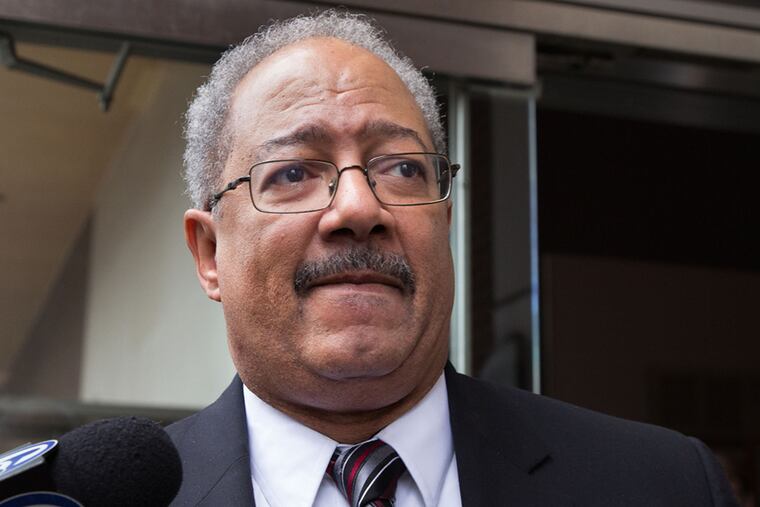Chaka Fattah loses bid to have U.S. Supreme Court consider his appeal
The court denied a petition Monday to hear the 10-term congressman’s appeal, effectively ensuring he will serve out his full 10-year sentence -- one of the longest imposed against a member of Congress for corruption-related crimes.

Former U.S. Rep. Chaka Fattah’s quest to overturn his 2016 conviction for corruption-related crimes won’t be headed to the U.S. Supreme Court, effectively ending the West Philadelphia Democrat’s direct avenues for appeal.
The court denied a petition Monday to hear the congressman’s claims that the judge overseeing his trial improperly removed a juror during deliberations and altered the outcome of the case.
The high court’s filing did not explain its reasoning. But the ruling placed a significant hurdle in the way of Fattah’s efforts to secure his release from his 10-year sentence — one of the longest punishments ever imposed on a member of Congress for corruption-related crimes.
Lawyers for Fattah, 62, and U.S. Attorney William M. McSwain’s office both declined to comment.
Fattah was convicted in 2016 on 17 federal counts tied to bribes he accepted and money he stole from federal grant funds, charities, and his own campaign coffers to pay his personal and political debts.
In their appeal to the U.S. Supreme Court, his appellate lawyers argued that the verdict was tainted.
Days into deliberations, U.S. District Judge Harvey Bartle III removed one of the jury’s original 12 members after several jurors complained the man was refusing to deliberate, was ignoring evidence, and appeared to have an improper bias against the government.
That juror — and Fattah’s lawyers — later claimed that the man wasn’t refusing to participate but rather found the case against the congressman and his codefendants unpersuasive and was holding out to acquit.
Before Monday’s ruling, the Philadelphia-based U.S. Court of Appeals for the Third Circuit had rejected Fattah’s argument that the juror’s removal was improper.
But in the same opinion last year, the court overturned Fattah’s convictions on four bribery counts stemming from gifts he received over years from wealthy fund-raiser Herbert Vederman, who hoped to land a White House appointment as an ambassador. They included cash payments to the congressman’s children, college tuition for his South African au pair, and $18,000 to help purchase a Poconos vacation home.
The Third Circuit judges held that jurors had not been properly instructed on a new legal standard for political bribery convictions that the Supreme Court issued just days after the Fattah verdict.
Prosecutors have not said whether they intend to retry Fattah or Vederman — who was convicted alongside the congressman — under those new standards. Whatever decision they make is unlikely to affect the amount of time Fattah ultimately will spend in prison, given that he was sentenced to 10 years on each of the other 13 convictions the appellate court left in place.
First elected in 1994 to represent a district that encompassed parts of Philadelphia and Montgomery County, Fattah held several high-level positions in his 21 years in Congress, including a seat on the powerful Appropriations Committee.
He is being held at a federal detention center in McKean County, along with his son — Chaka “Chip” Jr. — who was convicted in an unrelated fraud case in 2015.